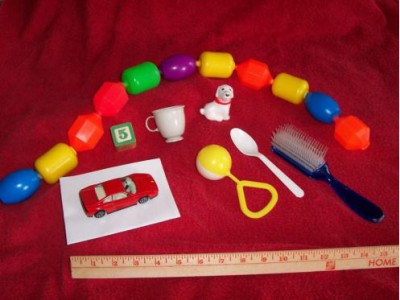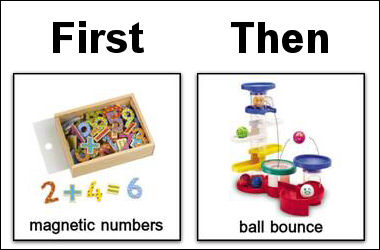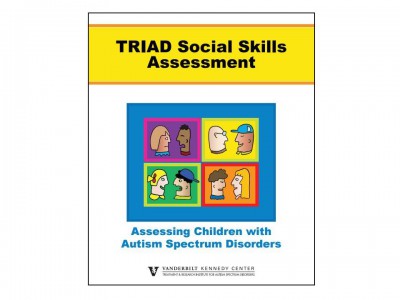Parent Interview for Autism–Clinical Version (PIA–CV)
The PIA-CV was developed to measure autism symptom severity across 11 behavioral domains in young children. The original PIA, which was conducted in interview format, demonstrated strong psychometric properties, including construct validity and discriminant validity for children between 20 months and 6 years (Stone & Hogan, 1993). The PIA-CV is a shorter version that can be used in questionnaire format. Five domains measuring social and communication skills (Social Relating, Affective Responses, Imaginative Play, Language Understanding, and Nonverbal Communication) were associated with clinically significant behavioral and diagnostic improvements from age 2 to age 4 in children with ASD (Stone et al., 2003). The PIA-CV is not a diagnostic tool; it has been used in group studies to measure changes in autism symptoms over time and to identify behavioral differences between young children with and without ASD. The PIA-CV is now available in both English (download) and Spanish (download).
Personalized Stories (English) | Personalized Stories (Spanish)
The UW READi Lab has partnered with Autism Speaks to provide a series of personalized PowerPoint templates that parents and therapists can use to explain social situations to children with autism. We invite families to customize these story templates with your own photos or pictures to help your child know what to expect and how to act in a variety of everyday situations. The Personalized Story templates currently available are: Going to a Restaurant, Going to the Store, Handling Bullying, Having a Play Date, Potty Training, and Taking Turns.
To get ENGLISH download instructions and stories, click here: (Instructions/Stories). To get SPANISH download instructions and stories, click here: (Instructions/Stories)
University of Washington contributors to story content, illustrations, and photos include: Wendy Stone, PhD, Thanh Nguyen, MA, Kelly Johnson, PhD, Ashley Penney, MEd, BCBA, Amy Rodda, PhC, CCC-SLP, Raphael Bernier, PhD, Samuel Zinner, MD, Charu Gupta, MEd, BCBA, Catherine Brock, MA, and Eileen Feldman, PhD, BCBA-D. Microsoft Office also contributed to the original packaging and distribution of these the personalized stories through a content distribution partnership with Autism Speaks.
Comparison of Diagnostic Classifications for ASD
Curious about how the diagnostic criteria for ASD have changed from DSM-IV to DSM-5? This chart illustrates the similarities and differences between the two diagnostic systems, as well as how they compare to the IDEA classification system. Download.
Motor Imitation Scale (MIS)
The Motor Imitation Scale was developed to measure motor imitation performance in young children with ASD. It consists of 16 items, half assessing imitation of body movements and half assessing imitation of actions with objects. Some of the items have been incorporated into the STAT, so they may look familiar to STAT users! Download.
VISUAL SUPPORTS Booklet for Home and School
The Visual Supports Booklet illustrates the myriad ways that visual supports can be used with children with ASD, to help increase the predictability of daily events, help children express their needs and preferences, convey behavioral expectations, and teach the steps involved in everyday routines. It was developed for use in home and school settings. Download.
TRIAD Social Skills Assessment
The TRIAD Social Skills Assessment (TSSA) was developed to provide a more comprehensive picture of children’s social interaction skills than was available from other tools at the time. The TSSA provides activities that can be used with children, as well as checklists that can be completed by teachers and parents, to help clinicians identify individualized treatment goals in the cognitive, behavioral, and affective areas of social skill development. It was designed for elementary-school-aged children with ASD whose reading skills are at the 1st grade level or higher. Download. The assessment is also available in French!



